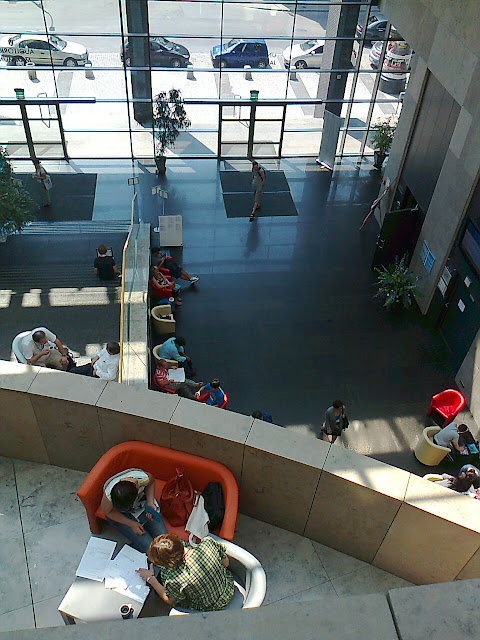so july is the holiday month in finland, or rather: the vacation month.
if i remember correctly what my friends told me,
the finnish government guarantees 4 weeks of paid time off.
having chosen to go to the office today, after a long hiatus, i feel a little like the pixar character
wall·e, methodically puttering around and arranging things in an abandoned world ..
.. with the hope that, over enough time and effort, a larger order appears.
[1]
today, in particular, felt inconsequential. i almost wrote an introduction to an upcoming preprint .. the important word being
almost.
at some point, i felt like the background lacked depth, so i kept clicking links on mathscinet to references in the literature.
more information has to make it better, right ..?
[sighs]
i should have just written something quick and dirty, printed it out, and leaving the office for the sunshine, edited it into something better. (one of these days i'll buy a printer for my own use.)
i am feeling pleased, though.
i'm back at home from the conference(s) to settle into peace and quiet. there's a long stretch of time for me to get back to my life, finish some tasks that i've been putting off ..
.. like writing mathscinet reviews,
doing my part in a few collaborations, both very overdue tasks.
\-:
call it egoism, but i'm most excited to finish off this one project. the preprint is almost ready. it almost reads like one.
the more i think about it, though, the less significant the result becomes .. but ultimately that doesn't matter too much:
i just want it to take a particular shape,
have it capture something that i intend,
make clear what is really essential in these phenomena.
after traveling and seeing friends, i guess i'm glad to get back to work .. because this is the fun, creative kind of work.
(-:
[1] yes, the fact that wall e is making structures out of trash is not lost on me. sometimes my results do come out of a mess and assembled from the theoretical scraps of others. i prefer to compare it to forming diamonds from coal, myself.









